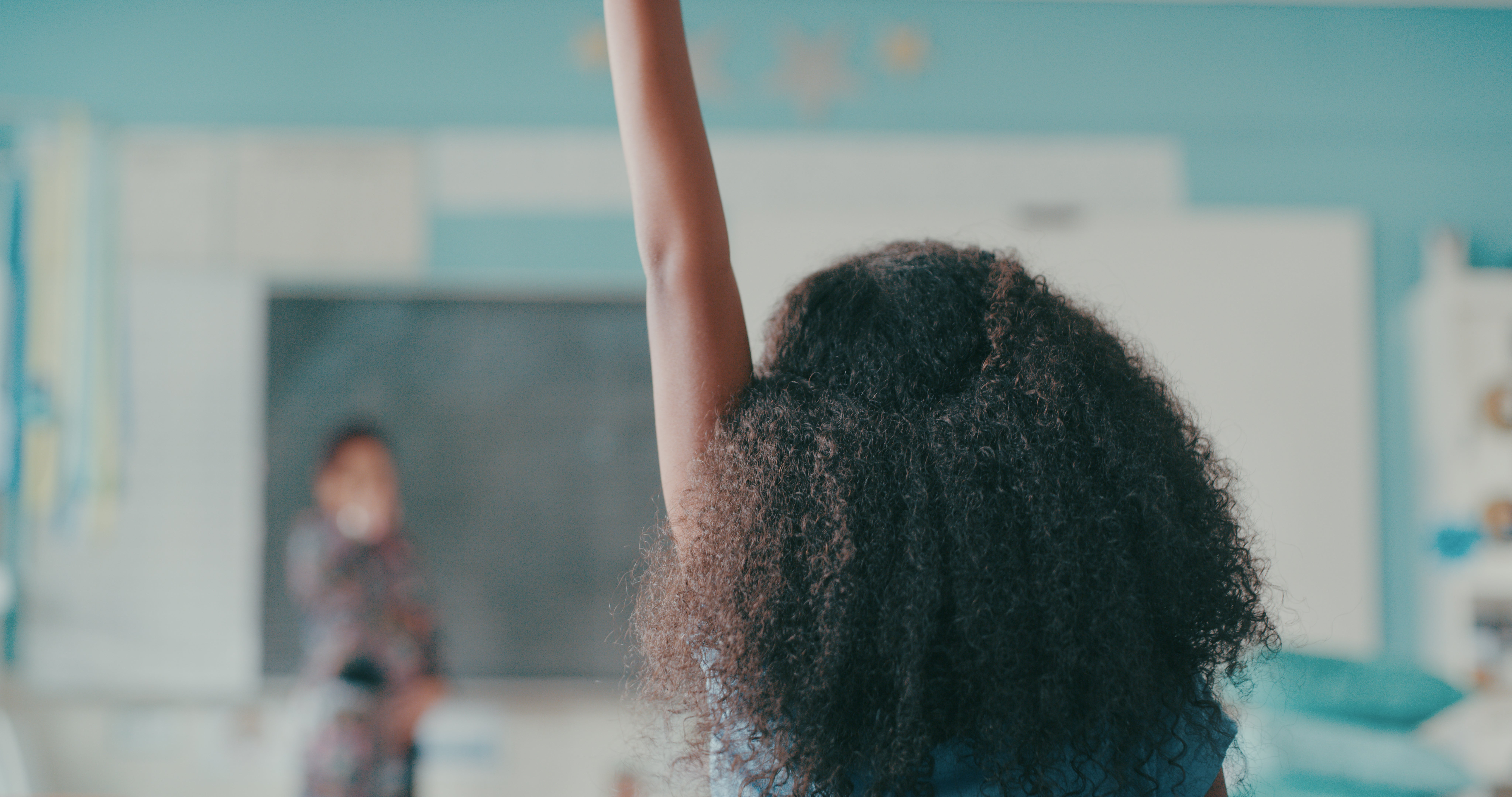Child Q’s abuse reminds us that Black people are dehumanised every day
The strip-search by Metropolitan Police officers took place at the girl’s school in Hackney, without another adult present and in the knowledge that she was menstruating


Your support helps us to tell the story
From reproductive rights to climate change to Big Tech, The Independent is on the ground when the story is developing. Whether it's investigating the financials of Elon Musk's pro-Trump PAC or producing our latest documentary, 'The A Word', which shines a light on the American women fighting for reproductive rights, we know how important it is to parse out the facts from the messaging.
At such a critical moment in US history, we need reporters on the ground. Your donation allows us to keep sending journalists to speak to both sides of the story.
The Independent is trusted by Americans across the entire political spectrum. And unlike many other quality news outlets, we choose not to lock Americans out of our reporting and analysis with paywalls. We believe quality journalism should be available to everyone, paid for by those who can afford it.
Your support makes all the difference.A Black schoolgirl, known as Child Q, was strip-searched by police while on her period, after being wrongly suspected of carrying cannabis.
The search by Metropolitan Police officers took place at the girl’s school in Hackney, without another adult present and in the knowledge that she was menstruating, according to a safeguarding report which found the incident was completely unjustified and racism “was likely to have been an influencing factor”.
Staff at the school called the police and four officers turned up. Two female officers took her into a medical room and subjected her to humiliation of the worst kind, involving the exposure of her intimate body parts. She was forced to spread her legs, use her hands to spread her buttock cheeks, and cough.
“Someone walked into the school, where I was supposed to feel safe, took me away from the people who were supposed to protect me and stripped me naked, while on my period,” the girl said in a statement to the panel.
Wrapping my mind around the perverse degradation of this Black baby has been difficult; fathoming the perpetration of police and sexual violence against her. This violation was completely enabled by the staff members at her school who apparently saw nothing wrong with this treatment, and sent her back to an exam minutes later. It’s only when Child Q went home later and told her mother that all hell, rightly, broke loose.
A less-discussed fact is that school staff had wrongly accused the girl of possession of cannabis weeks before, and – despite their mistake – threatened the child and her mother with the prospect of expulsion, in this manner: “If she is found with weed/drugs on her she will not be able to continue her place with [the school].”
The basis for the school’s initial allegation? That Child Q appeared to be “intoxicated”, which, her mother explained, was because she’d been up until late the night before – studying. They also expressed concern about cannabis possession because another student, apparently known to the girl, was excluded for drug possession months before. “Known” to her. This sounds like a joint enterprise sentence: when we say the school-to-prison pipeline is real – believe us.
The details of this case are totally abhorrent. Family members described Child Q as changing from a “happy-go-lucky girl, to a timid recluse that hardly speaks”, who now self-harms and needs counselling.
“Child Q was searched by the police and was asked to go back into the exam without any teacher asking her about how she felt, knowing what she had just gone through,” her mother said. “Their position in the school is being part of the safeguarding team – but they were not acting as if they were a part of that team.
“This makes me sick – the fact that my child had to take her sanitary towel off and put the same dirty towel back on because they would not allow her to use the restroom to clean herself.”
This little girl hasn’t been the same since, and must now live with what’s happened every single day. “I feel like I’m locked in a box, and no one can see or cares that I just want to go back to feeling safe again, my box is collapsing around me, and no-one wants to help,” she said.
Sadly, these types of abuses are perpetrated against Black girls and Black women 365 days a year, in a society where we’re neither believed nor protected by the laws of the land and its institutions. Last night, I was on the phone to a young woman – aged 29, like me – who was on the verge of tears due to being so affected by Child Q’s case. The same thing happened to her when she was a girl.
More than 650 police officers are working in British schools, with many assigned to sites in areas of high deprivation, amid concerns of the disproportionate targeting of Black children. This violence has been enacted by the state – and supported by some of the same politicians who express outrage over Child Q’s case now. Where are we safe?
Black children are perceived as older and more “grown up” through the gaze of white law enforcement – and the adultification of Child Q was a key factor in how she was treated in an incident where she was robbed of something that she’ll never get back: her innocence, the belief that she’d be safe in school.
I, for one, couldn’t consume the contents of the 36-page document in one sitting; because, like many others, I found it deeply triggering and couldn’t do any better, really, than to try and distract myself with music. I tweeted through my frustration; thoughts like, “the school can f*** off with that too”, and liked a myriad of tweets that struck a chord with my sense of sorrow and outrage – that chimed with the collective pain of Black communities, in particular, up and down the country.
These are the cries of Black girls who regularly have injustices visited upon them and are forced to suffer in silence; the weeping of Black women who bear wounds from their childhood – often as a result of racism – and remain overlooked or (worse) ridiculed at the fringe of society. The moans of Black mothers who bend over backwards trying to make a better way for their little ones, often working multiple jobs while balancing their will to protect them from the cruelty that the world metes out to the “other”, and the desire to prepare them for life outside their front doors. The prayers of Black parents that their children will return to them at the end of each day: physically, emotionally, mentally and spiritually intact.
Behind the headlines about the plight of Black boys are the forgotten stories of Black girls and women. For example, we’ve only just learned that Black girls are twice as likely to be excluded from school than their white counterparts; years after seeing regular data produced about other groups. A US-based study reveals that Black girls are perceived as less innocent than white girls – starting at age five.
According to research by Sistah Space, 86 per cent of women of African and/or Caribbean heritage in the UK have either been a victim of domestic abuse or know a family member who has been assaulted. However, only 57 per cent of victims said they would report the abuse to the police.
A study from Refuge shows that between March 2020 and June 2021, Black women were 14 per cent less likely to be referred to Refuge for support by police than white survivors of domestic abuse.
To keep up to speed with all the latest opinions and comment, sign up to our free weekly Voices Dispatches newsletter by clicking here
Child Q deserves more than an apology from the Metropolitan Police – she needs justice. The police failed her and the school failed her, walking her to peril like a lamb to the slaughter. All too often, schools are hostile environments for Black children and young people – take it from someone who was illegally off-rolled from sixth form and self-taught her AS courses just to stay off the streets.
It’s important to avoid sharing details that will lead to the identification of Child Q, who has suffered enough without the public scrutiny. And, as much as people may be angry and tempted – as I was during a heightened emotional state last night – to dig around for the name of the school in an attempt to hold it to account, this should be avoided too, as this could lead to identification of the innocent girl.
From the school to the police – no one has lost their jobs. Everyone has been allowed to simply crack on while Child Q suffers, and should her plight, God forbid, worsen as a result of her trauma, then society will be all too quick to write her off as a failure.
It is essential that the British public – and concerned parties overseas – call upon the government and council to right the wrongs enacted here. It is essential that Black girls are protected.
“On the top of preparing for the most important exams of my life. I can’t go a single day without wanting to scream, shout, cry or just give up,” Child Q said. “Things need to change with all organisations involved. Even I can see that.”
All of this, on the eve of the anniversary of a government-backed report which says the world should look to multicultural Britain as a beacon of hope. With each passing day, we’re reminded of how this world dehumanises Black people – and even our children are seen as fair game.
Join our commenting forum
Join thought-provoking conversations, follow other Independent readers and see their replies
Comments